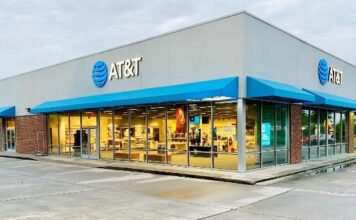 Openwave Mobility, a telecom software provider for mobile operators to monetize mobile data, has released its predictions for 2017.
Openwave Mobility, a telecom software provider for mobile operators to monetize mobile data, has released its predictions for 2017.
President Trump will change net neutrality
John Giere, president and CEO of Openwave Mobility
A Trump Administration is likely to ease net neutrality rules which could foster innovation in the mobile industry. The regulatory shackles could come off and operators would be free to launch zero-rated plans. They could offer more unlimited services and provide consumers with better choice. On the other side of the Atlantic, how will net neutrality be approached in a post-Brexit Europe? Globally, other countries could replicate America’s net neutrality stance. 2017 heralds an unprecedented opportunity for mobility operators globally to boldly innovate with their pricing models.
Will IoT kill the internet in 2017?
Indranil Chatterjee, SVP Product and Sales at Openwave Mobility
2016 saw one of the largest DDoS attacks to date, as the Mirai IoT botnet wreaked havoc on large parts of the net. The internet was designed to survive a nuclear attack, but if something infected it from within – it could be fatal. Many fear that DDoS could eventually undermine the internet. While flashy IoT gadgets usually grab the headlines, 2017 may see the proliferation of unsecure IoT devices open more avenues for security attacks. Mobile operators have a major role to play – for example accurate traffic management tools could identify unsafe UDP traffic.
Death of traditional DPI accelerates
Matt Halligan, CTO of Openwave Mobility
There’s a sure-fire certainty in 2017. Social media and OTTs will launch even more services, and this adds to the cocktail of diverse traffic on mobile networks. Just look at some of the developments in 2016. WhatsApp launched video calls, YouTube started 4K live streaming and Snapchat introduced Spectacles. Operators have the unenviable task of delivering this data and managing subscriber Quality of Experience (QoE). To handle the ever-changing protocols mobile operators need Deep Packet Inspection (DPI) solutions that have evolved to be agile, accurate and virtualized. Existing DPI solutions are a dead piece of investment. The protocols and signatures they are looking out for now won’t even exist by the end of 2017.
Network encryption could reach 80 percent
Santiago Bouzas, product marketing strategist at Openwave Mobility
Currently around 50 percent – 60 percent of operator networks have gone dark. That’s because OTT encryption is increasing. As a result, carriers have zero visibility into the data travelling on their networks and are unable to manage subscriber QoE. And it is about to get worse… Apple will launch its App Transport Security (ATS) mandate on 1 January 2017. Google is forcing encryption on developers for sign-in pages. Online ads are also being encrypted. In fact, 80 percent of the data travelling on mobile networks will be encrypted in 2017. Unless operators take proactive steps now, be ready for more dark networks and QoE headaches.
Connected cars, smart homes and a 5G reality check
Aman Brar, VP, SDM and Global Alliances at Openwave Mobility
There will be over 20 billion connected devices by 2020, yet some mobile operators still are not sure how they will manage and monetize them. In 2017 operators will deploy IoT frameworks and start preparing to manage their IoT subscribers with User Data Repositories.
Looking to 5G and beyond, a number of operators have started to explore their options with network slicing. But be careful not to put the cart before the horse. Operators will need capacity and reporting tools which are key for spectrum planning and management.
Will NFV finally arrive?
Fergus Wills, director of Product Management at Openwave Mobility
Reality is catching up with the hype. After much talk and talk (and more talk), R&D trials, evaluations and proof of concept demos – NFV is getting serious for operators. The proof is the significant increase in the number of RFPs for robust, large-scale NFV requirements. Operators are looking to invest in real time distributed data bases that deliver telco grade five nines availability. It is not just Tier 1 operators who are busy virtualizing. IoT, 5G and the cloud have clearly inspired tier 2 – 3 operators too. 2017 could be the year when network providers globally plan for a virtualized future.
M&A in 2017
John Giere, president & CEO of Openwave Mobility
2016 saw its fair share of acquisitions. Some were major. Verizon courted Yahoo. AT&T wants to gobble Time Warner. What’s clear is that content still remains king. More operators are likely to either acquire or partner with content companies in 2017 to increase eyeballs and secure more subscribers. With Subscriber Data Management (SDM), operators will be able to monetize their biggest asset – their customers. This leaves more room for operator innovation. Could 2017 be the year Netflix gets acquired – by an operator?





